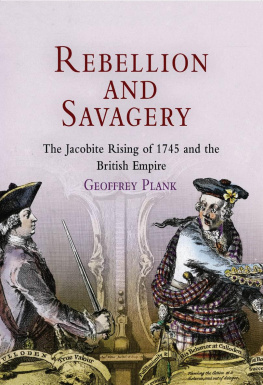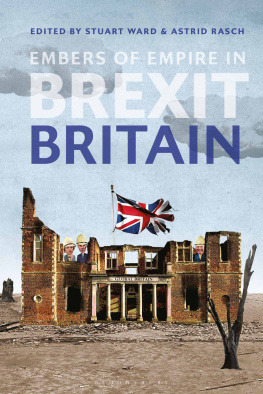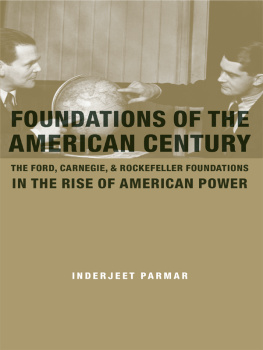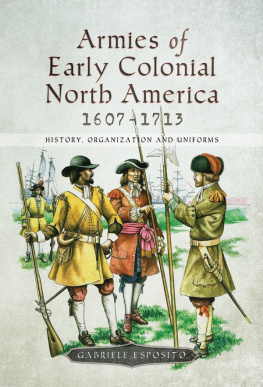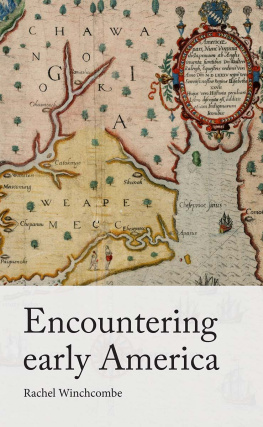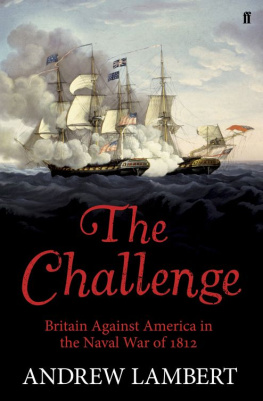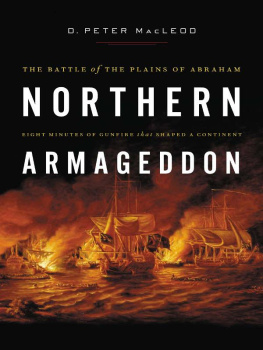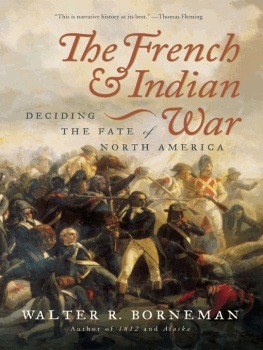A FLEETING EMPIRE
A FLEETING EMPIRE
EARLY STUART BRITAIN AND THE
MERCHANT ADVENTURERS TO CANADA
ANDREW D. NICHOLLS


McGill-Queens University Press 2010
ISBN 978-0-7735-3778-1
Legal deposit third quarter 2010
Bibliothque nationale du Qubec
Printed in Canada on acid-free paper that is 100% ancient forest free
(100% post-consumer recycled), processed chlorine free.
This book has been published with the help of a grant from the Research
Foundation, Buffalo State College.
McGill-Queens University Press acknowledges the support of the Canada
Council for the Arts for our publishing program. We also acknowledge the
financial support of the Government of Canada through the Canada Book
Fund for our publishing activities.
Library and Archives Canada Cataloguing in Publication
Nicholls, Andrew D. (Andrew Dean), 1965
A fleeting empire: early Stuart Britain and the merchant
adventurers to Canada / Andrew D. Nicholls.
Includes bibliographical references and index.
ISBN 978-0-7735-3778-1
1. Kirkes Expedition, 1627-1629. 2. Qubec (Quebec)HistoryCapture,
1629. 3. CanadaDiscovery and explorationBritish. 4. Great Britain
Politics and government16031649. 5. CanadaHistoryTo 1663 (New
France). I. Title.
FC330.N53 2010 971.0114 C2010-903008-7
This book was designed and typeset by studio oneonone in Sabon 10.2/14.5
For Laura
CONTENTS
ILLUSTRATIONS
ACKNOWLEDGMENTS
As the reader will soon discover, this work stems from a long-standing interest in several overlapping stories. Bringing them all together in this book has been a project many years in development, and I owe thanks to a number of people who have helped it to fruition.
Shirley Whittington, then Public Information Officer at Sainte-Marie among the Hurons, encouraged me to write my first article on the Kirke Brothers for the sites magazine in 1995. That, as they say, got the ball rolling. Courtesy of an invitation from my friend Dr David Allan to speak at St Andrews University in 2001, I was able to test and expand my research on Lord Ochiltree. Dr Allan and his colleague Dr Roger Mason offered many useful suggestions for further elucidating the Ochiltree element of the story. As these threads started to come together, I entered into a most fruitful correspondence with Dr John G. Reid of St Marys University. The reader will see how important his work has been in shaping this book. I want to thank him for the encouragement and expertise he offered me while I worked on it and several articles that preceded it.
Closer to home I have benefited from the interest and assistance of many others, not least from my wife, Laura, and my parents, Dean and Elaine Nicholls. Much of this book was written while I was on sabbatical in the fall of 2007 and spring of 2008. Never underestimate the value of friendship and exercise when writing! Bosworth (the beagle) got me out for a walk every morning at 10:30 precisely! Hes a great companion.
Friends, colleagues, and a decades worth of students at Buffalo State College and elsewhere, have heard and critiqued various parts of this material, and I have enjoyed and appreciated their input. An unexpected pleasure and adventure was the chance to present my research to the officers of Hmcs Toronto, while sailing between Norfolk, Virginia, and New York, in May 2008. That remains a wonderful memory, and I want the officers and crew of that fine ship to know how much it meant for me to live among them for a few days and experience life at sea.
Several people read all or parts of the manuscript as it evolved and offered useful feedback and comments during the writing process. I would especially like to acknowledge Paul Delaney, Dennis Ford, Jamie Hunter, Paul Marttin, and Ted Schmidt. The manuscript benefited greatly from suggestions of the two anonymous referees engaged by McGill-Queens University Press.
Writing a book requires a great deal of tangible assistance, and considerations large and small. My two department chairs through this process, Drs E.O. Smith, Jr and David Carson, were helpful and kind in a variety of ways that benefited the work. Drs Lawrence Flood and Mark Severson, deans of the School of Natural and Social Sciences at Buffalo State College during these years, provided both encouragement and financial support for research and publication. I further wish to acknowledge the financial assistance provided by the Buffalo State College Provosts Incentive Program, and by Ted Turkle and the Research Foundation.
Finally, my thanks to Jonathan Crago, Joan McGilvray, and Jane McWhinney, all of McGill-Queens University Press. Jonathan has been a constant advocate and friend through this process; Joan steered me through all the production-related elements that were essential to this book; and Jane copy-edited the manuscript with skill, grace, and wit. It has been my pleasure to work with all of them.
INTRODUCTION:
ON FILLING THE GAPS
On the front cover of Building the Canadian Nation, the history text my mother used in high school, is a collage: a lone Indian in a canoe is surrounded by images of a Viking longboat, a prairie farmer driving a wagon piled with wheat, a North West Mounted Police officer, a locomotive, and drawings of Second World Warera military hardware. Looking at it, one would assume that the history it recounted had entailed many things, and that not all were benign. As with all survey texts, its intention was to be as comprehensive as possible, and it had to conform to a particular narrative defining a Canadian nation. But, as many history instructors, students, and readers will attest, the survey approach also makes gaps inevitable.
In the account of the founding of New France and what used to be known as the heroic period of Canadian History when intrepid missionaries lived among the indigenous peoples, and in several cases died as martyrs for the cause of Christianity one such gap appeared. In describing the early career of Father Jean de Brbeuf and the aftermath of his arrival in New France, the author, George Brown, noted: For three years he worked among [the Hurons]. Then Quebec was taken by the English in 1629 and until the French returned the work came to an end.
My mother cannot recall if she questioned this interruption to the otherwise dominant theme (the study of indigenous peoples aside) of early Canadian history the development of New France but I remember my own first fleeting awareness of this story. In the book we used at Parkview Public School in Midland, Ontario, in the late 1970s, whose title I no longer know although I can still in my minds eye see its royal blue cover, we learned a little more: the Kirke brothers, who were English privateers, seized and held Quebec in 1629 until it was returned to the French according to the provisions of a treaty in 1632. In my high school and first undergraduate Canadian History courses, the Kirke brothers were sometimes mentioned but they were never explained. That pattern is present in most survey texts of Canadian history if they mention the Kirkes at all. The privateer brothers are ghosts who make only a fleeting appearance and are gone.
Their story would likely never have meant any more to me had I not in the mid-1980s worked as a summer interpreter and later as a staff supervisor at Sainte-Marie among the Hurons in Midland, the reconstructed historic site of the French Jesuit mission headquarters in Huronia. In discussing the history of that site, especially in the wake of Pope John Paul IIs 1984 visit to Sainte-Marie and the adjacent Martyrs Shrine, the Kirke brothers suddenly re-emerged, not least because much of our interpretation involved Brbeuf and, by necessity, his sudden departure from Huronia in 1629, courtesy of the Kirkes and their capture of Quebec.
Next page

